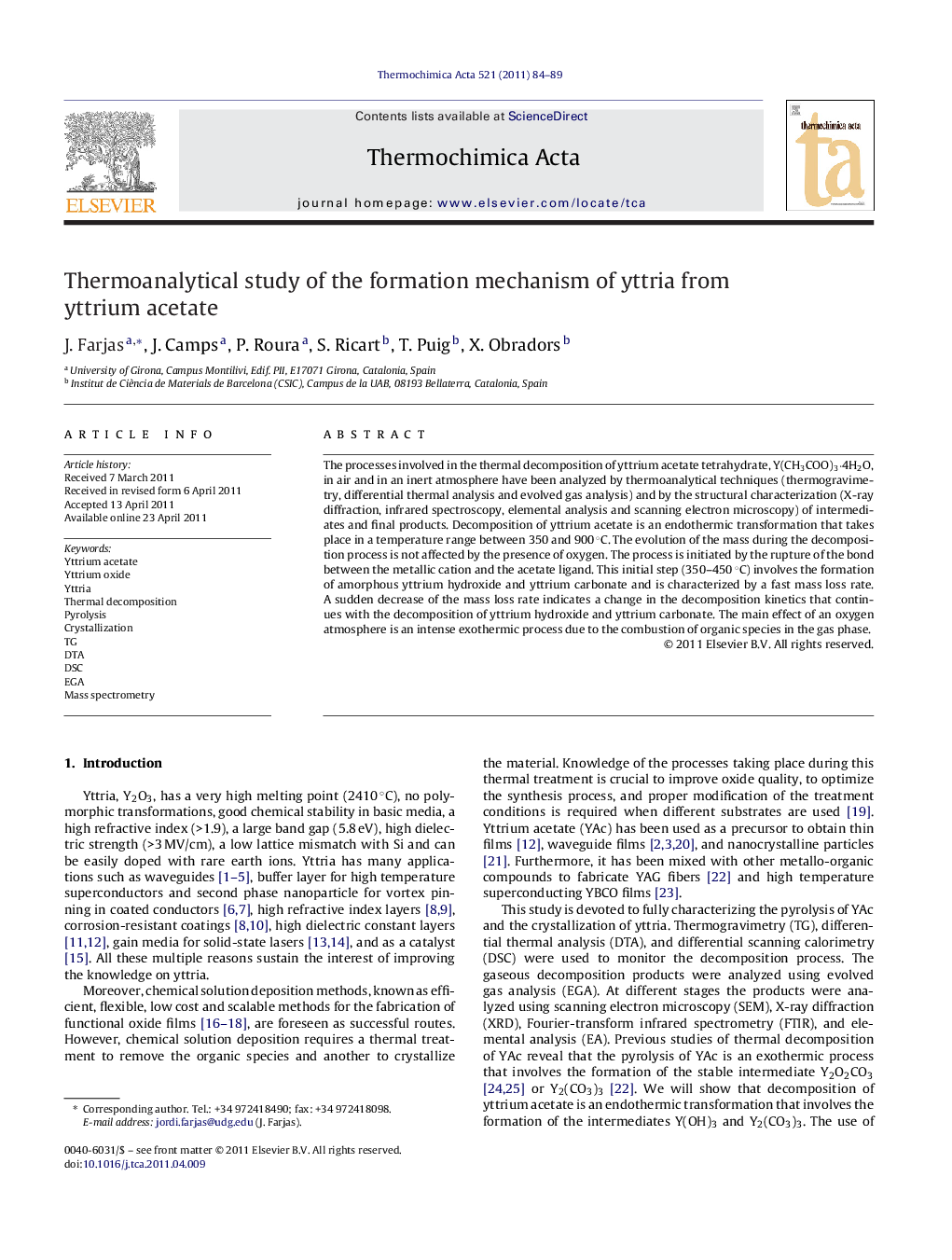| کد مقاله | کد نشریه | سال انتشار | مقاله انگلیسی | نسخه تمام متن |
|---|---|---|---|---|
| 674495 | 1459563 | 2011 | 6 صفحه PDF | دانلود رایگان |

The processes involved in the thermal decomposition of yttrium acetate tetrahydrate, Y(CH3COO)3·4H2O, in air and in an inert atmosphere have been analyzed by thermoanalytical techniques (thermogravimetry, differential thermal analysis and evolved gas analysis) and by the structural characterization (X-ray diffraction, infrared spectroscopy, elemental analysis and scanning electron microscopy) of intermediates and final products. Decomposition of yttrium acetate is an endothermic transformation that takes place in a temperature range between 350 and 900 °C. The evolution of the mass during the decomposition process is not affected by the presence of oxygen. The process is initiated by the rupture of the bond between the metallic cation and the acetate ligand. This initial step (350–450 °C) involves the formation of amorphous yttrium hydroxide and yttrium carbonate and is characterized by a fast mass loss rate. A sudden decrease of the mass loss rate indicates a change in the decomposition kinetics that continues with the decomposition of yttrium hydroxide and yttrium carbonate. The main effect of an oxygen atmosphere is an intense exothermic process due to the combustion of organic species in the gas phase.
► Thermal decomposition of yttrium acetate: three endothermic stages.
► Intermediates: yttrium hydroxide and carbonate.
► Product: cubic yttria (the degree of transformation is at least 99%).
► The decomposition does not depend on the oxygen partial pressure.
Journal: Thermochimica Acta - Volume 521, Issues 1–2, 10 July 2011, Pages 84–89